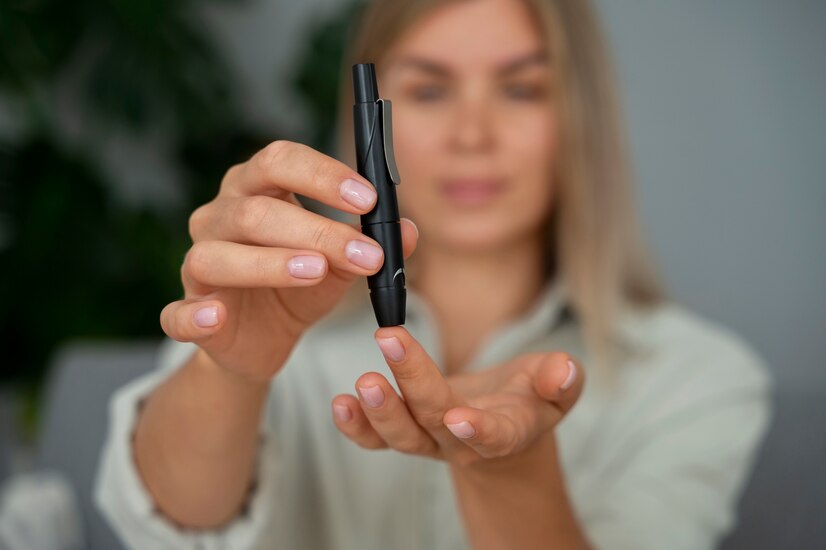Table of contents
As type 2 diabetes and prediabetes rates continue to rise globally, more people are exploring natural and alternative options to manage blood sugar and metabolic health. One promising area gaining attention is the connection between CBD and insulin resistance.
Cannabidiol (CBD), a non-psychoactive compound derived from hemp and cannabis, is widely recognized for its anti-inflammatory, antioxidant, and neuroprotective properties. Emerging research suggests CBD may also play a role in improving insulin sensitivity and metabolic function — two critical factors in preventing and managing type 2 diabetes.
In this blog, we’ll explore the growing body of research on CBD and insulin resistance, how it works in the body, possible benefits, and practical ways people are incorporating CBD into their wellness routines.
What Is Insulin Resistance?

Insulin resistance occurs when the body’s cells don’t respond properly to insulin, the hormone responsible for transporting glucose (sugar) into cells to be used for energy. As a result, glucose builds up in the bloodstream, leading to elevated blood sugar levels.
Over time, this can progress to prediabetes, type 2 diabetes, and contribute to a variety of health issues, including:
- Increased fat accumulation, particularly around the belly
- Fatigue and brain fog
- Hormonal imbalance
- Cardiovascular disease
- Inflammation and oxidative stress
The Link Between CBD and Insulin Resistance

🧪 Scientific Insights
Recent research suggests CBD may be a helpful supplement for those managing insulin resistance. Although human trials are still limited, studies in animals and lab settings are showing promising results:
🔬 1. Anti-inflammatory Action
Chronic low-grade inflammation plays a significant role in insulin resistance. CBD has shown to reduce systemic inflammation, potentially improving how cells respond to insulin.
🔬 2. Metabolic Regulation
CBD may affect metabolism through its interaction with the endocannabinoid system (ECS), which regulates homeostasis, including glucose and lipid metabolism. It may help regulate appetite and fat storage.
🔬 3. Improved Glucose Uptake
A study published in the journal Autoimmunity found that CBD reduced the incidence of diabetes in non-obese diabetic mice. It may help the body absorb and utilize glucose more effectively, reducing insulin resistance.
🔬 4. Liver Health
CBD has demonstrated the potential to reduce liver fat accumulation and inflammation, which are key components in metabolic syndrome and non-alcoholic fatty liver disease (NAFLD) — both closely linked with insulin resistance.
How to Use CBD for Insulin Resistance
If you’re considering trying CBD as part of your metabolic wellness routine, here are a few suggestions:
- Start with a full-spectrum or broad-spectrum CBD oil for the “entourage effect” (enhanced benefits from multiple cannabinoids).
- Capsules and softgels provide pre-measured doses and are easy to integrate into your daily routine.
- CBD-infused foods or drinks are also available, though be mindful of sugar content.
- Topicals are less effective for internal conditions like insulin resistance, but may help with joint or nerve pain caused by diabetic complications.
As always, begin with a low dose and increase gradually, monitoring your blood sugar and overall wellness.
Potential Side Effects and Precautions
CBD is generally considered safe and well-tolerated, but individuals managing insulin resistance should be mindful of the following:
- Medication Interactions – CBD can interact with medications processed by the liver, including some antidiabetic drugs.
- Blood Sugar Monitoring – Track changes in blood glucose when introducing CBD.
- Quality Control – Choose third-party tested products to ensure purity and accurate labeling.
Consult your doctor before beginning any new supplement, especially if you are on prescription medications or managing a chronic condition.
Real-World Testimonials
Many people living with prediabetes or type 2 diabetes have turned to CBD as part of their health journey. While individual results vary, common themes include:
- Improved energy and mental clarity
- Reduced cravings and appetite
- Better sleep and mood regulation
- Lower fasting blood sugar readings over time
5 FAQs About CBD and Insulin Resistance
No, CBD is not a cure. However, it may help reduce inflammation and support insulin sensitivity when used as part of a healthy lifestyle.
CBD may interact with some medications. Speak with your healthcare provider before combining CBD with metformin, insulin, or other drugs.
Results vary. Some individuals report changes in a few weeks, while others may need longer to see measurable differences. Consistency is key.
There’s no one-size-fits-all dose. Start with 10–25 mg daily and adjust based on your body’s response and doctor’s advice.
CBD itself doesn’t usually cause hypoglycemia, but it can enhance the effects of other medications. Monitor your levels closely.
Final Thoughts
While research into CBD and insulin resistance is still emerging, the existing studies and anecdotal evidence suggest real promise. With its ability to influence inflammation, metabolic function, and stress levels, CBD may become a powerful ally in the fight against prediabetes and type 2 diabetes.
If you’re interested in trying CBD, make sure to use high-quality products, stay consistent with your dosage, and keep in close communication with your healthcare provider. Combining CBD with a balanced diet, exercise, and stress management techniques can create a well-rounded approach to improving insulin sensitivity and overall health.





